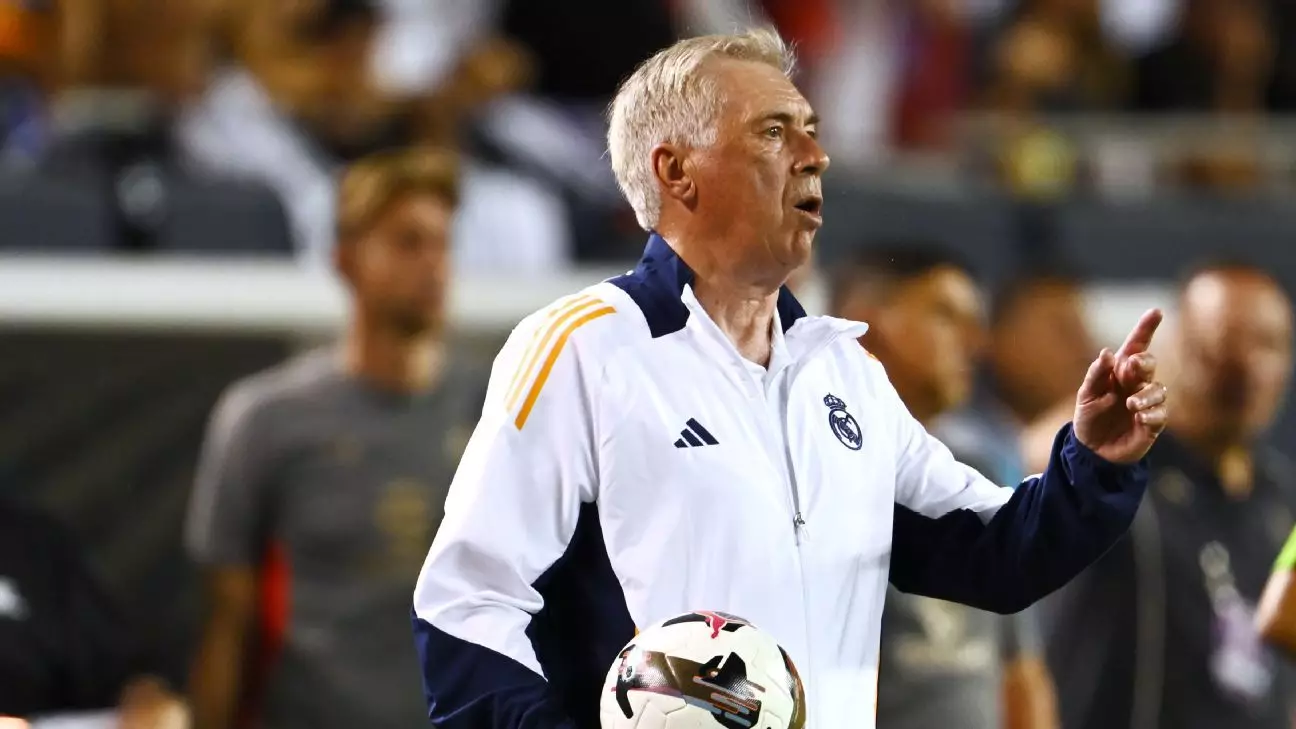In the evolving landscape of football, player welfare has become a paramount concern, as evidenced by recent statements from prominent figures in the sport. Real Madrid’s head coach, Carlo Ancelotti, has openly discussed the potential ramifications of an increasingly congested schedule that could see elite athletes participating in up to 85 competitive matches in a single season. The expanding Champions League and the newly formatted Club World Cup have significantly contributed to this intense calendar. According to Ancelotti, players are prepared to take a pay cut if it means reducing their game time, emphasizing the importance of their health and performance on the pitch.
The notion of players accepting reduced salaries for less taxing schedules reflects a broader trend in professional sports, where long-term durability often supersedes immediate financial incentives. This sentiment has been echoed by Manchester City midfielder Rodri, who highlighted the possibility of strike action among players, further intensifying the dialogue surrounding workload and compensation. The willingness of players to make sacrifices for their wellbeing poses critical questions for football’s governing bodies regarding the sustainability of their current formats and schedules.
Ancelotti’s perspective is not solely a lamentation over calendar congestion but rather a call to action for meaningful reform within the sport. During a recent press conference, he articulated that while immediate changes may not occur, it is essential for the football community to engage in dialogue that prioritizes player health. The Italian tactician stated, “The complaints of coaches and players will not change this season’s calendar,” signifying an acknowledgment of the challenges at hand. This highlights a significant tension between the financial ambitions of clubs and the physical limits of the players who make the game possible.
His insights point to an emerging consciousness within the sport, recognizing that repeated injuries and fatigue are detrimental not only to individual players but also to the league’s overall quality and entertainment value. A strategic reassessment is needed at the highest levels, focusing on developing robust frameworks that protect players while maintaining the sport’s integrity.
As Real Madrid navigates the tumultuous waters of La Liga, the team’s performances have varied, reflecting the typical early-season adjustments. After a triumphant 3-1 win against Stuttgart in the Champions League, Ancelotti expressed cautious optimism about his squad’s progress. He acknowledged that, while beautiful football is being played, there is a continual need for improvement. With the team currently sitting third in La Liga, four points behind rivals Barcelona, the focus remains on achieving a balance between winning and developing player capabilities.
Ancelotti remarked on the importance of collective team dynamics, asserting that true balance is not merely a function of tactical formations but rather a manifestation of teamwork and commitment. His evaluation of shifting to a four-midfielder setup reveals a deeper understanding of how tactical decisions should enhance player performance and team cohesion, rather than drastically alter established strategies without a clear rationale.
One of the bright spots for Real Madrid has been the emergence of young talent, particularly Endrick, the Brazilian forward who has made a significant impression since joining from Palmeiras. Ancelotti’s decision to include him as a starter in upcoming matches speaks to a strategy focused on integrating promising players into crucial roles as the season progresses. His endorsement highlights the dual mission of nurturing young athletes while maintaining competitive performance standards.
Additionally, the anticipated return of Eduardo Camavinga from injury strengthens the team’s midfield options. Ancelotti’s assessment of Camavinga’s recovery suggests a proactive approach to managing player fitness, essential in the face of overwhelming schedule pressures.
As football continues to grapple with evolving demands, Ancelotti’s reflections shed light on significant issues that require urgent attention. From managing player workloads to nurturing talent, the future of the sport hinges on recognizing and prioritizing the well-being of its athletes. By embracing dialogue and advocating for structural changes, the football community can ensure that the game remains not only competitive but also sustainable for generations to come. The situation calls for innovative thinking and a collective commitment to fostering an environment where players can thrive both on and off the pitch.


Leave a Reply